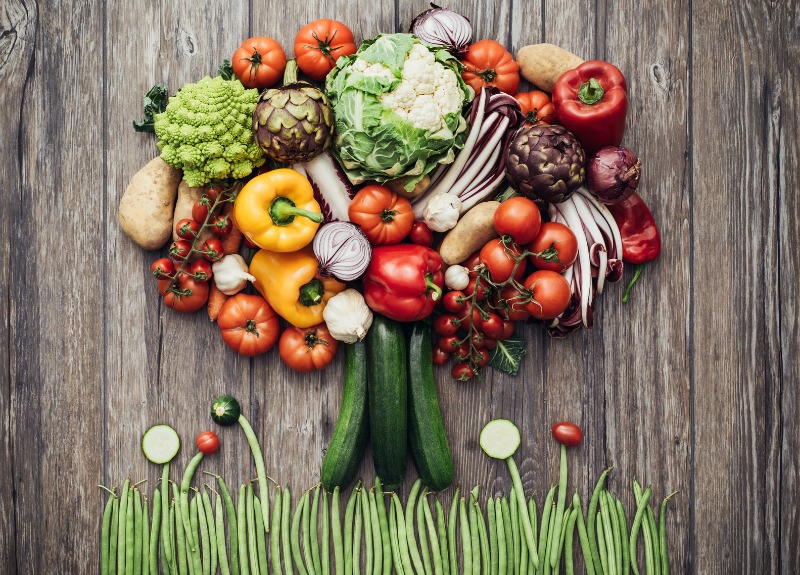Editorial
Unprecedented challenges and opportunities for the food industry
KEYWORDS
NGT
NBT
GMO
Innovation
Food law
Alternative protein
This is a unique time in history for the agro-food system. A time squeezing the food industry between a rock and a hard place, and yet providing tools and motivation to hold up to the challenge. A time that requires food producers to meet the demand for healthier foods, more environmental, social and governance-compliant products, while reducing costs in the context of the economic recession, which has seen double-digit food price surges across Europe last year, as well as supply chain hurdles.
In this midst, companies have never had such technological advances at hand. Digital automation, big data and AI have the power to bring personalized nutrition to the table, to better anticipate consumer demand and consequently reduce food waste, and to better respond to supply chain disruption challenges.
State of the art/Analogs
While the looming perspective of soon having to feed 10 billion humans, which will require us to produce 70% more food by 2050 according to the FAO (1), world citizens are opening up to change.
One-third of European consumers are buying fewer animal products following their recent price rise. Europe’s plant-based industry grew by almost 50% between 2018 and 2020. Cell-based agriculture – cell-based meat, also called in vitro meat or lab-grown meat, cultured meat or clean meat – has made gigantic advances in the past 10 years. Singapore approved cell-based meat commercialization in 2021 – a great step for the country’s food sovereignty. With the successful consultation of UPSIDE cell-based chicken by the FDA in 2022, we could also be close to our first cell-based bites in the US. The readers will find more insights on cell-based meat in the PROTEINS section of this issue.
Insect protein got the novel food status in Europe in 2021 and the use of insect powder or flour is now spreading in sports nutrition, energy bars, and even luxury chocolate pralines as you will read in this Agro FOOD issue. And more sustainable nutrition is coming, such as microalgae bioactives, mushroom protein (2), and precision fermentation solutions, like the American Air Protein project, to produce carbohydrates and fats thanks to hydrogenotrophic bacteria assimilating CO2 from the air (3), or Arkeon in Austria (4).
In the probiotic space, new solutions such as those developed by TargEDys (5) are coming to the market to regulate appetite on the one hand, and to better absorb protein on the other, with the potential of both optimizing food requirements and reducing overconsumption (6, 7).
Gene editing could accelerate crops’ resilience to climate change and the associated increased frequency of droughts. Even giants like Nestlé and Unilever say they invest in regenerative farming practices that enrich the soil and soak up carbon.
Food innovators will meet more challenges downstream, with regulatory approval routes and consumer acceptance not solved yet, but our industry is making fast strides in the right direction.
Retailers and policymakers called to the stand

Beyond the food industry though, policymakers and retailers should take their part of the responsibility. Subsidies in the EU can’t keep coming for anachronistically unsuited foods like meat and the cereals that feed the meat, at the expense of horticulture. This is inconsistent with the same nations' nutrition guidelines and climate objectives. Similarly, the Climate Action Network examined all 8 major French supermarkets (Auchan, Carrefour, Casino, Intermarché, Leclerc, Lidl, Monoprix and Super U) and claimed that “no supermarket allows consumers to have sustainable food” (8). Advertisements and promotions in the shops encourage the purchase of meat and dairy, which are responsible for over two-thirds of emissions of the food production chain. Shelf space is skewed toward industrial production, with less than 10% of meat being organic for example, and 92% of prepared meals containing meat or fish. The report states “the current regulatory framework is flawed as it allows supermarkets to promote products that are harmful to health and the planet, to make excessive mark-ups on sustainable products and not to provide fair remuneration to the farmers.” Yet, 4 in 5 consumers want to consume more responsibly, and 3 in 4 are ready to reduce meat consumption. The food industry is proposing solutions. Now we need authorities and retailers to do their part to make healthy, sustainable diets the most accessible and easy choice, not targeted just for a privileged elite, but for all.
References and notes
- https://www.fao.org/fileadmin/templates/wsfs/docs/expert_paper/How_to_Feed_the_World_in_2050.pdf
- https://www.foodnavigator.com/Article/2023/02/21/Upcycling-food-waste-to-grow-highly-nutritious-mycelium-protein?bid=49730618&cid=DM1058604&utm_campaign=21-Feb-2023&utm_medium=email&utm_source=newsletter_daily
- https://medium.com/illumination/the-ultimate-next-generation-meat-substitute-1758979708eb
- https://arkeon.bio/
- https://www.targedys.com/
- Erkosar B,et al. Pathogen Virulence Impedes Mutualist-Mediated Enhancement of Host Juvenile Growth via Inhibition of Protein Digestion. Cell Host Microbe. 2015 Oct 14;18(4):445-55. doi: 10.1016/j.chom.2015.09.001.
- Déchelotte P. et al. The Probiotic Strain H. alvei HA4597® Improves Weight Loss in Overweight Subjects under Moderate Hypocaloric Diet: A Proof-of-Concept, Multicenter Randomized, Double-Blind Placebo-Controlled Study. Nutrients. 2021; 13(6):1902. https://doi.org/10.3390/nu13061902
- https://www.foodnavigator.com/Article/2023/02/02/no-supermarket-allows-consumers-to-have-sustainable-food-climate-action-network#

